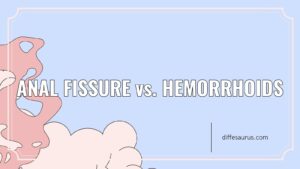Anticholinergic and Cholingeric Toxicity Primer are commonly used in medicine and are prescribed for many conditions. The parasympathetic nervous system is worked on by these medications. The sympathetic nervous system and the PNS compliment each other and make up.
The parasympathetic nervous system is stimulated by the use of cholinergic drugs. Anticholinergic drugs prevent the parasympathetic nervous system from binding to receptors that initiate the parasympathetic response by blocking the action of acetylcholine.
Are anticholinergics and cholinergic antagonists the same?
The effects of acetylcholine are antagonized by them. Most of the drugs are anti-nicotinic or muscarinic. Some act on the ion channel, while others block the release of acetylcholine.
What is the difference between anticholinergic and antimuscarinic?
Antimuscarinics are anticholinergic drugs. The term anticholinergics refers to agents that block the cholinergic system. There are two categories of anticholinergics: antimuscarinics and antinicotinics.
Which drugs are anticholinergic?
The drugs that block the action of acetylcholine are known as anticholinergics. There is a chemical messenger called Acetylcholine.
What are anticholinergic drugs used for?
The action of a neurotransmitter is blocked by anticholinergic drugs. The nerve impulses that cause muscle movements and other bodily functions are disrupted by this.

What are two examples of anticholinergic drugs?
Artane and Cogentin are used to treat Parkinsons’ disease. The pressair is used to treat respiratory conditions. Atropine is a drug that is used to treat eye conditions. During surgery, it’s used to reduce saliva and mucus in the airway. Is used to treat bladder disorders.
What are cholinergic agents?
The action of acetylcholine and butyrylcholine can be mimicked by cholinergic agents. The term ‘choline’ is used to describe the various quaternary ammonium salts. Inositol is a basic component of lecithin and is found in most animal tissues. Choline facilitates the movement of fats into cells and prevents fat deposits in the liver.
Can you overdose on anticholinergic?
Intentional overdose, accidental ingestion, medical noncompliance, or geriatric polypharmacy are some of the possible causes of anticholinergic syndrome. Systemic effects were also caused by eye drops. The ingestion of a wide variety of prescription and over-the-counter medications can lead to anticholinergic syndrome.
What is anticholinergic system?
Anticholinergics decrease or block the actions of chyln on its parasympathetic nervous system on smooth muscle cells. nicotinic or muscarinic are the terms used to describe the cholinergic receptors. Anticholinergics have a variety of actions and clinical usefulness for a variety of conditions.

What is anticholinergic toxicity?
Competitive antagonism of acetylcholine at central and peripheral muscarinic receptors results in anticholinergic syndrome. Symptoms of peripheral inhibition include hot, dry skin, flushed appearance, mydriasis, and decreased bowel sounds. There is a spectrum of severity ranging from mild symptoms to a life threatening condition, although seizures, coma and cardiovascular toxicity may not be mediated by muscarinic effects. The anticholinergic toxidrome may be less apparent as a result of polypharmacy overdoses.
What drugs are cholinergic?
A cholinergic drug is a drug that mimics the action of the neurotransmitter acetylcholine and dilates blood vessels.



